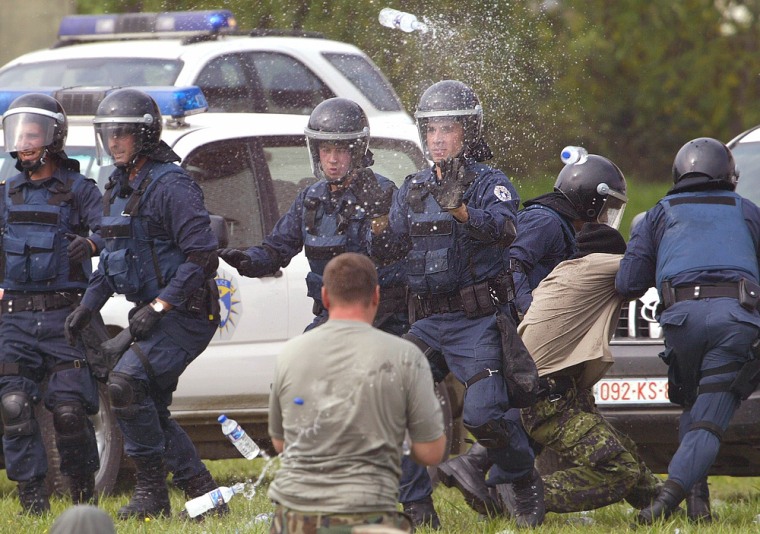A top U.N. envoy recommended in a report obtained Friday that talks on Kosovo’s final status begin, taking the critical first step toward resolving the future of the province where NATO troops have kept the peace since the end of the 1998-1999 war.
As expected, U.N. Secretary-General Kofi Annan backed the recommendation from his envoy, Norway’s Kai Eide. He sent Eide’s report and a letter to the Security Council saying he would appoint someone to oversee the talks. Both documents were obtained by The Associated Press.
Eide had spent five months assessing whether Kosovo’s ethnic Albanians and Serbs were ready to strike a deal. The letter sets in motion a process that could start negotiations as early as next month.
“It is important that the discussion begins soon,” Annan told reporters in the Swiss capital, Bern.
Albanians want full independence
The issue is highly contentious because the province’s majority ethnic Albanians want full independence, but the Serb minority insists that Kosovo remain part of Serbia-Montenegro, the union that replaced Yugoslavia.
Eide said there was little choice but to go ahead with the talks, though he acknowledged that Kosovo’s economy was poor, its rule of law spotty and efforts to create a harmonious, multiethnic society largely had been unsuccessful.
“There will not be any good moment for addressing Kosovo’s future status,” Eide wrote. “It will continue to be a highly sensitive political issue.”
Western diplomats have pushed hard to resolve Kosovo’s status. Some 17,500 peacekeepers — including 1,800 Americans — have tried to keep both sides apart.
Kosovo has been run by the United Nations and patrolled by NATO peacekeepers since the alliance’s 1999 air war that halted a Serb crackdown on separatist ethnic Albanians. But a more permanent solution for peace in the province has proved elusive.
With sporadic violence making the status quo increasingly untenable, diplomats have argued that only a lasting peace will create the political certainty demanded by investors and international donors — the outsiders who can channel the cash needed to restart the dormant economy and rebuild the tattered infrastructure.
The United Nations had said that for the talks to take place, Kosovo must meet eight benchmarks. They include establishing democratic institutions, protecting minorities, promoting economic development and ensuring the rule of law, freedom of movement and property rights.
U.N. officials widely acknowledge that the region has not met all the benchmarks. Yet they have essentially come to recognize that Kosovo cannot remain under U.N. administration forever.
“It is unlikely that postponing the future status process will lead to further and tangible results,” Eide said.
Annan wrote in the letter that he would appoint a special envoy to lead the negotiations. Finnish President Martti Ahtisaari has been mentioned as the most likely candidate despite objections from Belgrade.
